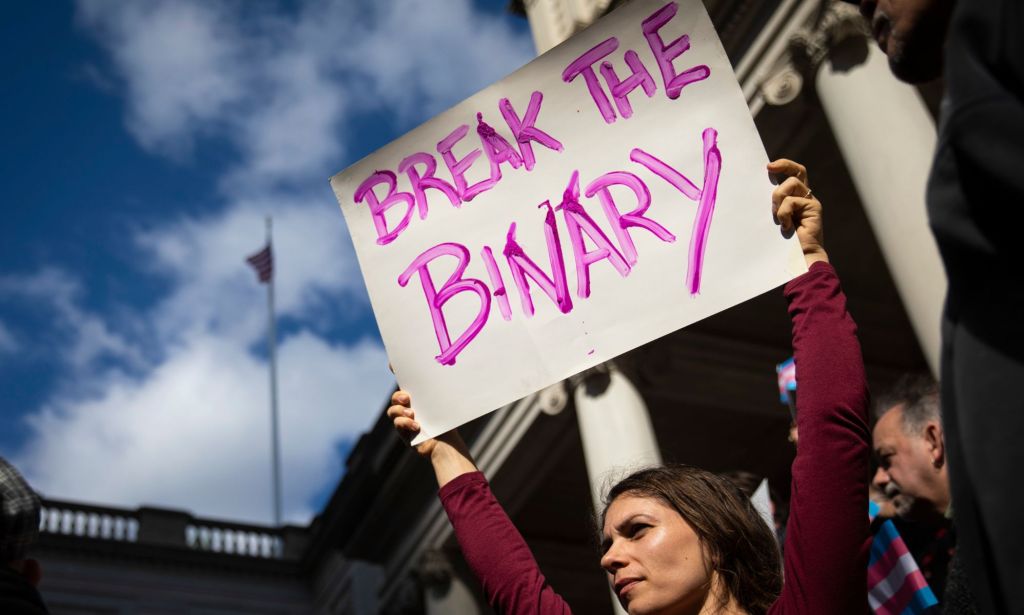Discrimination is major factor affecting trans+ people’s mental health, says study

Transphobia is a main contributing factor to trans people’s mental health, a report has found. (Getty)
New research has revealed the impact of transphobia on transgender and non-binary people’s mental health.
The study, “State of Trans+ Mental Health 2024,” surveyed more than 2,000 people across 75 countries, with 68 per cent of respondents saying they had been diagnosed with a mental-health condition. On average, one in every six suffered with depression and anxiety. More than 51 per cent experienced “poor or very poor” mental health.
More than 80 per cent of those who responded said a lack of social acceptance was one of their main challenges, while a similar number, 79.8 per cent, put gender dysphoria as one of their biggest hurdles. Fear of discrimination (70.7 per cent) and family rejection (59.9 per cent) were also mentioned.
The report, published by LGBTQ+ mental wellness app Voda, found that just 14.7 per cent had a positive experience when accessing healthcare, while 40.7 per cent had difficulty even doing so.

An overwhelming majority of respondents emphasised the importance of mental-health services for trans people being created by transgender and non-binary individuals, with nearly 84 per cent highlighting the need for therapists or mental-health professionals to also transgender or non-binary.
Jaron Soh, Voda’s co-founder and chief executive, said: “This report is a call to action to recognise the significant gaps in mental-health provision for trans+ individuals, and [to] work toward creating inclusive, affirming services that address their needs.”
Chris Sheridan, lead psychotherapist at Voda, said the findings contributed to the already large amount of evidence that mental-health issues for trans and non-binary people were “deeply rooted in systemic transphobia”, adding: “The report underscores the urgent need to improve affirming healthcare while advocating for broader social justice forms, inclusive policies and comprehensive education aimed at dismantling prejudice and building environments where trans+ individuals can thrive.”
At present, 94 countries ban the right to change gender legally and 172 do not recognise non-binary genders. Twenty outlaw gender-affirming care, according to the community equality index Equaldex.
Share your thoughts! Let us know in the comments below, and remember to keep the conversation respectful.
How did this story make you feel?

